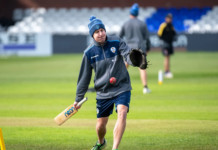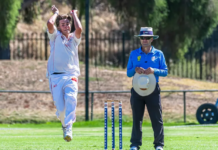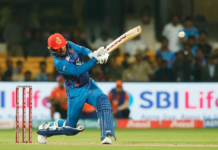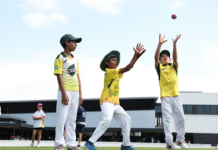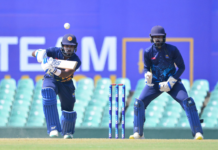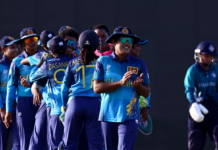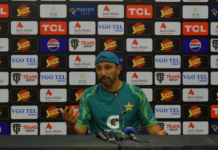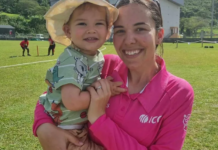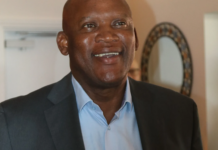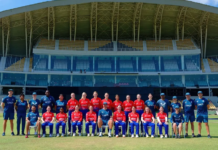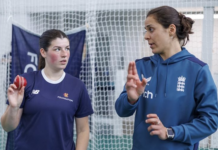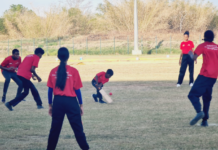Photo Credit: ECB
ECB’s Deputy CEO, Clare Connor, updates on cricket’s plans to respond to the ICEC report in the coming months.
The report written by the Independent Commission for Equity in Cricket (ICEC) made a huge impact when it was published just over a month ago. As was the intention, the ICEC held a mirror up to cricket and challenged everyone in the game to acknowledge some uncomfortable truths.
Like many I’m sure, my own reaction was a mix of sadness at the extent of the issues raised, empathy for those who have suffered, and a fierce determination that the report must be the catalyst for further and faster change to ensure everyone feels welcome in our sport.
In the last few weeks, cricket has been in the spotlight as we have witnessed two fiercely competitive Ashes series that have brought people together to enjoy the drama and inspiration of our sport. This is something we must celebrate, especially the enormous progress we’re witnessing in the women’s game with this Ashes surely the greatest international women’s series of all time. Having had a lifetime in the sport, it moves me more than I can say to see England women playing in sold out grounds with excited girls and boys cheering their new heroes. When we see the positive impact that cricket can have, it should make us all the more determined to ensure that cricket is a game where everyone can find their place.
Anyone who has had the chance to read the ICEC report in full will appreciate how detailed and thorough it is. It makes for difficult reading and the individual testimonies upon which it is based are deeply upsetting. There are almost 130 proposed actions to consider, across the core recommendations and their sub-recommendations. When the report was published, we said we would take three months to consider it carefully, to work through the recommendations with stakeholders, and then publish a detailed response making clear the action we will take.
Today, I’d like to update on what we have been doing so far and explain how we will use the weeks ahead to complete this phase of work. In my role as deputy CEO, I am leading the core project group at the ECB. We are working into a sub-group of ECB Board Directors that has been formed to oversee and challenge the response as it’s being developed.
Given the breadth of the report, we have created a number of workstreams that bring together subject matter experts from within the game, as well as from outside cricket, to analyse the recommendations and create our future plans. It goes without saying that the ECB has a significant role to play, but we can’t deliver the scale of change that is required alone. It is essential that we engage and work closely with organisations and people from across the game and beyond.
These discussions have begun in earnest, and we are gathering input as widely as possible: from colleagues, representative groups, fans and players. As well as our First Class Counties, Women’s Regional Teams and the recreational game, we have been talking to HR and EDI leads across cricket. We are also working with other organisations who have expertise in some of the key areas of the report, for example the South Asian Cricket Academy (SACA), the ACE Programme and Chance to Shine. Our Diverse Communities Advisory Panel will have a role to play, as will our game-wide ‘Race in Cricket’ and ‘Women in Cricket’ employee networks, which were set up earlier this year to give communities a voice to shape change.
There will be tough choices to make. It is critical we consider detailed costings or questions around implementation and prioritisation. It was not the ICEC’s remit to delve into this detail. Instead, quite rightly, it was to tell us where change must be focused. Now we will develop a comprehensive set of actions that cricket can deliver and fund, either immediately or within an achievable timeframe. Through August we will move to considering the ways in which the recommendations can be actioned, either through re-allocating funding, resourcing or structural changes. Plans will then be finalised in September, noting that three of the recommendations involve producing dedicated long-term Action Plans over the next 12 months.
We are aware that some people have commented on the fact that the report focused specifically on inequities across race, gender and class, and did not directly consider other protected characteristics, such as disability or LGBTQ+. Whilst our response will focus on the same three areas, we are committing to develop a broader EDI Action Plan that will incorporate other protected characteristics for longer term equity across the game.
On the day the ICEC report came out, we said this can’t be a quick fix. To address the deep-rooted, institutional challenges highlighted by the report, we need to deliver long-lasting, meaningful change. That is what we are focused on. We are determined to act comprehensively on the rallying call that the report has given our sport, and to put right previous failings to ensure cricket can become the most inclusive sport in England and Wales.

